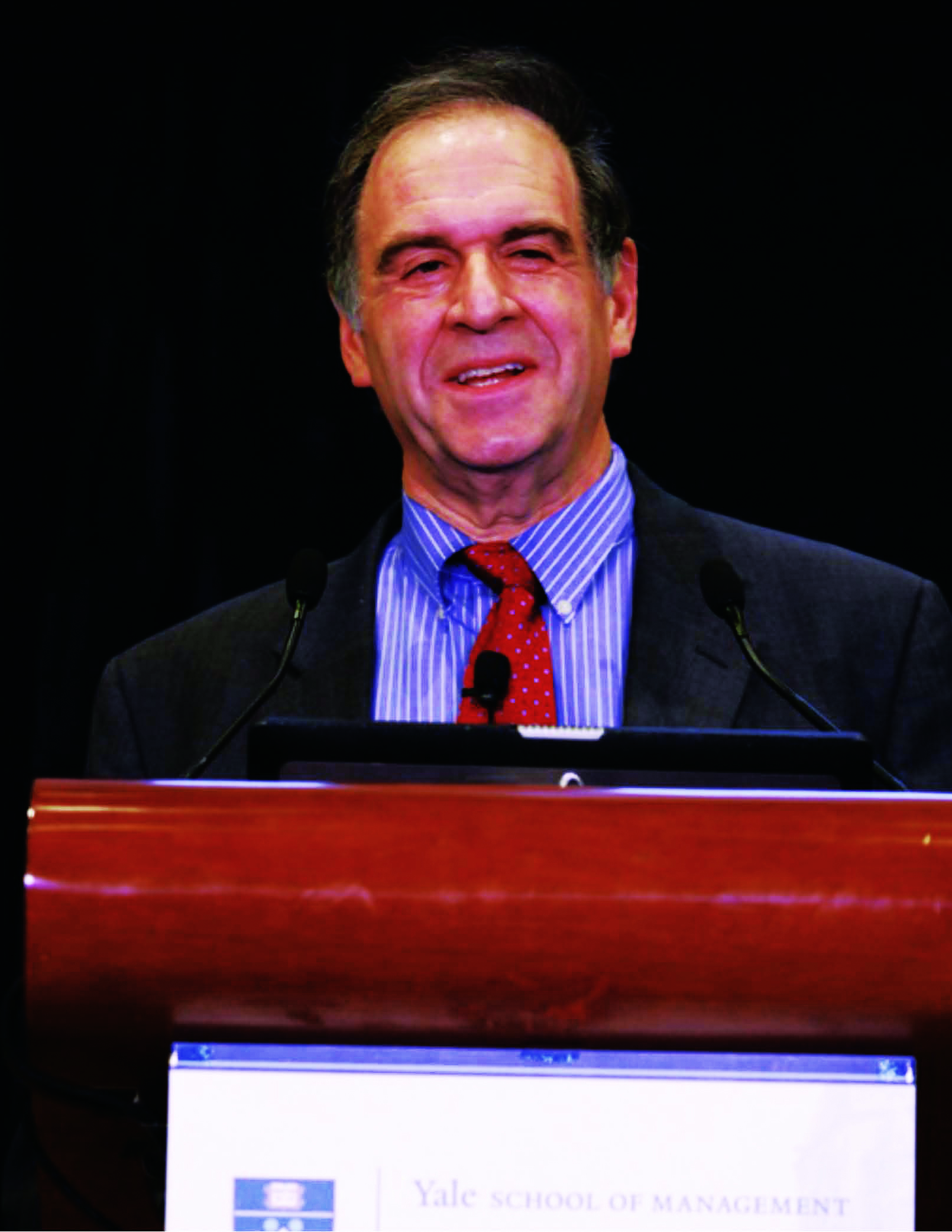
Jeffrey Sonnenfeld, an associate dean at the School of Management, was in a hotel room in Washington D.C. watching the second Republican presidential debate when he heard his name mentioned not once, but twice by two different candidates. Pandemonium ensued.
“I was utterly shocked to hear my name,” Sonnenfeld told the News following the debate. “I thought to myself, ‘Did that just happen?’ Then there was an explosion of electronic contact: emails, twitter, messages and phone calls from everyone I know.”
During the CNN Republican debate, which aired on Sept. 16, GOP candidate Donald Trump referenced an Aug. 14 article written by Sonnenfeld for Fortune Magazine. In the article, Sonnenfeld wrote that former Hewlett-Packard CEO and current Republican presidential candidate Carly Fiorina had “one of the worst tenures for a CEO that he had ever seen.” Fiorina defended her record on air by attacking Sonnenfeld as a “well-known Clintonite” who “honestly had it in for [her] from the moment that [she] arrived at Hewlett-Packard.”
But Fiorina’s criticism of Sonnenfeld extends past the debate. On her campaign website, she further describes Sonnenfeld as a biased commentator due to his friendship with former president Bill Clinton LAW ’73, husband of Democratic candidate Hillary Clinton LAW ’73.
Following the debate, Sonnenfeld wrote a renewed assessment of Fiorina’s leadership qualities on Politico, criticizing her refusal to acknowledge her own mistakes. In an interview with the News, Sonnenfeld stood by his critique of the GOP candidate, noting that she was misrepresenting her record at HP. Fiorina focuses solely on how she doubled the company’s revenue, Sonnenfeld said, ignoring HP’s poor stock performance and lack of profit during her six years at the helm.
“She dramatically distorts her record and I am concerned about correctly conveying the facts of what she did,” Sonnenfeld said. “For our system to work at its best, we have to hold people accountable for what they have achieved.”
Sonnenfeld, in addition to serving as an associate dean at the SOM, is also a contributor to CNBC and a frequent commentator on the performances of business leaders. In his work, he examines leaders across sectors, industries and political parties — an academic interest that first led him to examine Fiorina’s HP tenure.
He defended himself against Fiorina’s accusations of bias, calling her statements about him “pure inventions” and “ludicrous.” He said he had never heard the term “Clintonite” before, and that while he knows the Clintons socially — he said he used to jog with Bill Clinton on New Years Days — he was not an advisor to Hillary Clinton or affiliated with her current presidential campaign in any way.
Sonnenfeld added that he is also friendly with the Bush family and other prominent Republican politicians.
“Fiorina’s accusation was a ridiculous charge of political bias,” he said.
Students interviewed responded differently to Trump’s citation of Sonnenfeld’s article.
Jake Leffew ’19, who read about the incident in a New York Times article, said it is “fair game” for Trump to cite an academic article about Fiorina’s record. He said Fiorina reacted in an unpresidential manner, which may suggest that she cannot handle criticism in an appropriate way.
But Justin Knapp ’19, who watched the debate live and heard Trump’s quote, said Trump was in the wrong for perpetuating personal attacks against other candidates — a recurring trend in recent debates.
“I do wish Trump would stop setting the precedent of launching personal attacks against other candidates, no matter whether they’re based on academic papers or facts,” Knapp said.
While Sonnenfeld himself rejects the label of a “Clintonite,” Yale employees do have a record of supporting Clinton in her latest presidential campaign.
Employees of the University make up the fourth largest donor group to her presidential campaign. According to data from the Center for Responsive Politics, Yale employees have given over $95,000 to Clinton in the current election cycle. Professors and students interviewed after the statistics were released said they were not surprised, due to the education sector’s overall support for Democrats, in addition to Clinton’s affiliation with the University.
“The deep and long-lasting personal relationship that Clinton developed with her classmates and professors provides the key explanation to her popularity among Yale-affiliated members,” said SOM professor Rick Antle. “Many alumni and faculty in the Yale community simply know her better than they know … any other candidates.”
At the SOM, Sonnenfeld is the Lester Crown Professor in the Practice of Management.







